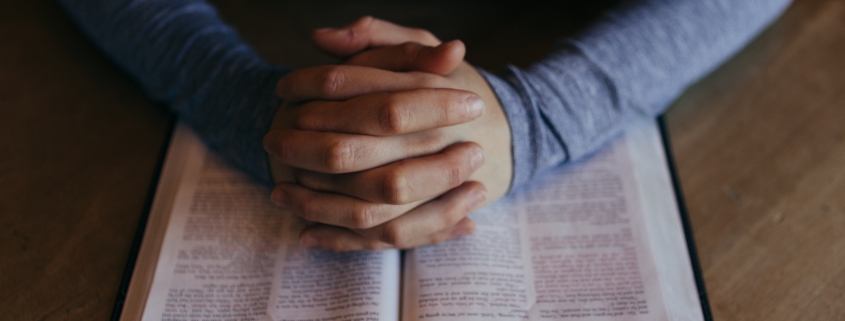Jesus’ Prayer in Gethsemane
Yet Not my Will, But What You Will
Jesus, with Peter, James, and John, went into the labyrinth of the olive trees. As they walked, Jesus’ anxiety grew further, and he became more troubled. He was breathing heavily, at times gasping and shuddering when he was confronted with the reality of his immediate future. Finally, he stopped, bent over, and took a deep breath. Jesus then told Peter, James, and John, “My soul is overwhelmed with sorrow to the point of death … Stay here and keep watch” (Mk. [14:34]).
Jesus walked further into the grove of trees by himself. Overwhelmed by his human fear, he went to his knees, and each time he thought about his future, he trembled. He was consumed with anxiety.
Finally, he began to pray. In his prayer, he sought another way. His mind was filled with many competing thoughts, but mostly, he just wanted to find a different way because he knew the pain that was coming. His eyes were clenched, and his face was contorted; he desperately sought clarity and an end to his confusion.
Then, lifting his head heavenward, he said, “Abba, Father, everything is possible for you. Take this cup from me. Yet not what I will, but what you will” (Mk. [14:35]). This prayer revealed his inner struggle. In his humanity, he wanted a safer way to complete his task, to avoid the painful drama that was coming. Yet in his divine state, he knew God had a plan and trusted God.
He rose from the ground, feeling somewhat relieved, and walked back to where he had left Peter, James, and John. Stunningly, when he arrived at the spot where he had left them, Jesus found them asleep, oblivious to the cosmic struggle he was undergoing. He needed them, but they had succumbed to their fatigue. Jesus woke Peter and said,
Simon, are you asleep? Couldn’t you keep watch for one hour? Watch and pray so that you will not fall into temptation. The spirit is willing, but the flesh is weak. (Mk. [14:37]–38)
Jesus needed Peter. In his disappointment, he had addressed Peter by his former name, symbolizing how Peter had drifted away while Jesus was grappling with mental anguish. Dismayed, Jesus turned and retreated into the grove.
Once more, his knees grew weak, and his breath became labored. Confronted again with the daunting reality of his imminent fate, he fell to his knees to pray. Sweat, born from his inner turmoil, dripped from Jesus’ face. Torn between God’s design for him and his human longing to find another way, he fervently sought clarity. In his mind, the same plea continually formed: “Not my will but yours.”
This internal battle persisted. While he recognized the necessity of following God’s plan, his human nature gave way to doubt. Each time he felt prepared, dread overwhelmed his humanity. And so, the struggle endured.
After some time, Jesus stood and approached the trio. To his dismay, he found them sleeping once more. Overcome by fatigue, their eyelids were heavy. In this moment, Jesus realized the depth of his solitude in this conflict.
For a third time, he ventured into the grove. With each passing moment, Jesus’ prayers grew more determined. When he finally submitted to God’s plan, a newfound clarity arose, and his determination solidified. During his third and concluding prayer, he declared with unwavering conviction, “Yet not as I will, but as you will” (Matt. [26:39]). Upon these words, a spirit of resolution enveloped Jesus. He was fortified, and prepared to enact the divine blueprint.
His grueling journey to fully accepting his mission had been completed. As Jesus made his way back to the apostles, his stride was firm and unyielding. Upon reaching them, he pronounced:
Are you still sleeping and resting? Enough! The hour has come. Look, the Son of Man is delivered into the hands of sinners. Rise! Let us go! Here comes my betrayer! (Mk. [14:41]–42)
Even though Jesus was the Son of God, he consistently identified himself as the Son of Man, highlighting his commitment to serving humanity. With unwavering resolve, he was set to fulfill his terrestrial mission.
Photo by Patrick Fore on Unsplash



